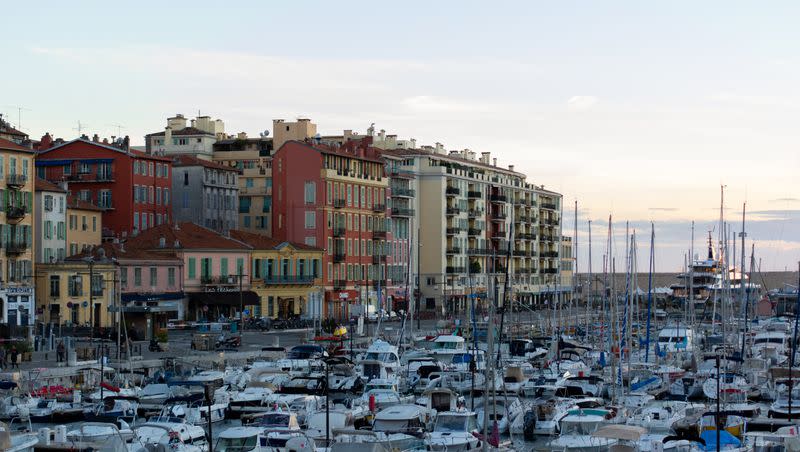Why you should visit the South of France in the fall and winter

Editor’s note: This story was originally published Nov 22, 2023.
At times during the holiday season, it may be beneficial mentally and emotionally to picture ourselves elsewhere. For me, this takes the shape of reminiscing on my recent travels to southern France.
The South of France is home to the Cannes Film Festival, the French Riviera — and was a haven for artists and writers in the early 20th century. The region has natural beauty beyond belief, charming streets to wander and a bevy of international travel.
From the time I started reading F. Scott Fitzgerald and Ernest Hemingway in high school, I knew that one day I’d make my writer’s pilgrimage, but as I really began looking into it, the merits of an offseason trip became more enticing.
Of course, this is generally my attitude with travel to most popular destinations, and in all honesty I hadn’t planned my visit until I saw a flight deal that was too good to pass up.
All the same, my trip along France’s southern coast proved my assumptions correct: offseason travel is the way to go, and here’s why.
1. Tourist spots are famously less crowded in the offseason
This point likely comes as no surprise to most travelers. Picking a destination when travel is less common means that you’ll face fewer crowds and obnoxious tourists (unless you plan on being one yourself). The attractions you’ve been waiting to see and transit hubs won’t be mired by massive crowds of people with no spacial awareness and who neglected to pack their social cues. The timing also means that prices on the most expensive parts of travel — accommodation and transit — are going to be much lower, per CNBC. From doing my own price comparisons, I found that I saved nearly $300 on accommodations alone with a mere three-week difference. For a region with a reputation for luxury, smaller crowds will help ensure you don’t break the bank while planning a trip.
2. Your interactions with locals will be more pleasant
As a person that craves human interaction but loves being alone, interacting with people, especially locals, while traveling solo is one of the most important parts of a trip for me. (Ironically, the bulk of my interaction occurred in English with someone from Australia, but that still counts to me). With fewer tourists in the area, I found that the quality and overall mood of my interactions with French people was laid back and quite pleasant. Though my poor command of the French language was painful for all parties involved, workers in cafes and shops were gracious about it. For all the advice I received about French people being rude and disdainful towards tourists not speaking the language, this expectation was turned on its heel by my actual experience.
3. Fall travel means milder weather
This point will mean more to people like me who absolutely despise hot weather. The South of France is most popular with tourists in the summer, but temperatures can be so high as to be only slightly bearable. In a region where walking is the best way to get around cities, heat can push you into slowing down more than you’d like. Believe me, I’m all for engraining yourself into the local way of doing things, but traveling usually means you’ve got a time limit on your visit. You’ll want to see and do as much as possible, even if your plan, like mine was, involves just a massive walking tour. Sure, you might not make it to the beaches, but there’s plenty more to do around town than sit at a beach for hours. And if you want to sit at a beach? Bundle up and watch the waves with a supermarket sandwich. During my visit, temperatures hardly fell below 60 degrees Fahrenheit during the day and hovered around 50 degrees at night.
4. The shorter days of fall and winter pass by much more enjoyably abroad
Again, this is subjective and only applies to those who don’t like shorter days, but I’d guess that this is more common than the alternative. Entering the winter season often means hunkering down at home and the appearance of seasonal affective disorder. Whether you experience harsh winters or not, this can inspire restlessness. Here’s the thing: it’s always going to be worse at home. When you’re home, hunkering down for the winter feels sad and confining. In the South of France, it will feel cozy and exciting. Plus, you’ll escape harsh winter weather and be in close proximity to the beach. The argument makes itself.
I’m a firm believer that almost every experience is what you make it, so any time you decide to make a trip to southern France can be the time of your life. If you have flexibility on travel times and would prefer a more laid-back experience, however, the fall and winter seasons may be your best bet.

